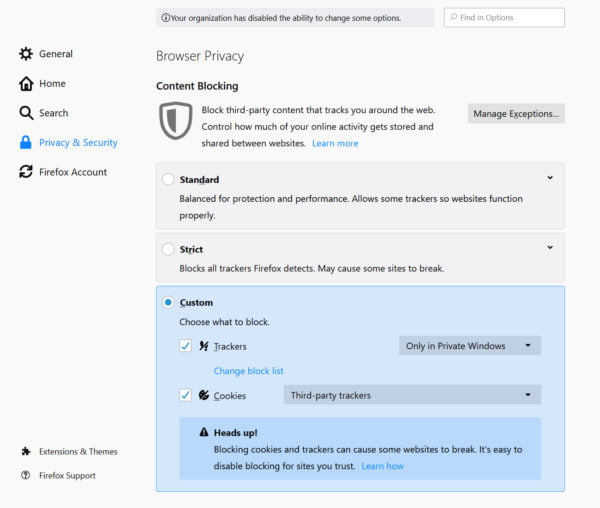
Imagine you are sitting on your terrace to enjoy the evening ahead, a cold drink in hand while browsing your favourite websites. But somehow, something doesn’t feel quite right. That one ad about those shoes you were looking for a week ago just popped up for the third time on sites completely unrelated to the online shop where you found them initially. And suddenly, that nasty feeling of being followed slowly starts creeping up your spine.
How does it know what you want and where to find you? Well, the answer is simple, really: cookies. While I am not sorry for causing any involuntary saliva production, this is an important topic worth discussing.
In general, cookies are placed in your web browser by the site owners in order to identify you and store the necessary information to customise the webpage, according to your behaviour and preferences, the next time you stop by. If you ever wondered about how websites can store your log-in data, that’s with the help of cookies. In most cases, cookies are used to enhance your browsing experience and are vital for certain functions and features of websites. Unfortunately, they can and actually are also used by advertisers to track you across multiple domains in order to deliver ad content specifically tailored to you, sometimes a bit too aggressively! You can find more information about cookies here.
User privacy has been and always will be a huge concern when browsing the internet as it can be a daunting online experience when you feel exposed. This is why companies like Apple and Mozilla, in particular, have been at the forefront when it comes to protecting your privacy while browsing with Safari or Firefox.
Safari ITP 2.1
Safari’s Intelligent Tracking Prevention (ITP) is an initiative started by Apple in 2017 to enhance privacy for its users. While previous versions of Safari mainly focused on dealing with cross-site tracking third-party cookies (placed in your browser by domains other than the one you are actually visiting), its newest iteration, ITP 2.1, now also tightens the noose around clientside first-party cookies by putting a 7-day expiration date on them. This change has been rolling out to iOS 12.2 and Safari 12.1 on macOS High Sierra and Mojave since the beginning of this year.
For users, the implementation of ITP 2.1 is good news in general, but the system is not without flaws. Website hosts in particular rely on these clientside first-party cookies in order to use their analytics tools properly. Although data can still be collected despite the 7-day expiration date, it significantly limits accurate interpretation of data, and in some cases renders it useless or gives you a wrong impression of your user base. If you see a lot of traffic on your website coming from Safari users, this could become a huge problem when it comes to reviewing your data.
If you feel like this might apply to you, it could be worth checking out Simo Ahava’s Blog in which he dives a lot deeper into ITP 2.1 and its effects on web analytics, while also showing tips and tricks on how to deal with it best.
Firefox Enhanced Tracking Protection
Mozilla just implemented changes to their enhanced tracking protection in their newest Firefox Version 67. This is the next step of Mozilla in combating third-party tracking and creating a safer and more private web experience for its users. Active protection is indicated by a small shield icon in the address bar and a list of all the companies being blocked by Firefox will be shown when clicking on the icon itself.
Mozilla follows a different approach when blocking trackers and cookies than Apple does. Instead of blocking or limiting all third-party and client side cookies by default, Firefox uses the Disconnect list to determine whether a cookie should be blocked or not. This curated list contains thousands of known tracking companies and is updated on a regular basis. The reasoning behind this decision is to keep the web experience as seamless and functional as possible, since some cookies are crucial for web building.
Users can choose between three different settings: Standard, Strict, and Custom.
Standard:
Blocks known trackers in private windows and third-party tracking cookies. This is the default setting.
Strict:
Blocks trackers in all windows and third-party tracking cookies. This might cause some sites to break.
Custom:
Allows you to select which trackers and cookies you want to block.
- For trackers, you can choose to only block them while using Private Browsing windows or to block them outright.
- For cookies, you can choose between:
- Blocking cookies from third-party trackers
- Blocking cookies from unvisited websites
- Blocking all third-party cookies
- Blocking all cookies

Additionally, Mozilla added new features to its Facebook Container. This extension prevents Facebook from tracking your web activity. With the latest update, Facebook Container also disables and blocks tracking from embedded Facebook functions, such as the Share and Like buttons on other websites. The intention of Mozilla is to stop Facebook from creating so-called Shadow Profiles of non-Facebook users.
A look to the Future
In many cases this development is a direct reaction to new security holes, workarounds, aggressive tracking and shady business techniques and will most likely continue in the future. Implementing and increasing security features to protect the privacy of users is nothing new and has been going on for years now, and for the most part website users will actually benefit from it. Google and Microsoft just announced new features for better protection of their users privacy as well.
It will be very interesting to see how analytics service providers will react to these changes though, as some of them are likely to have an impact on vital data gathering for web hosters around the world that should not be underestimated.

